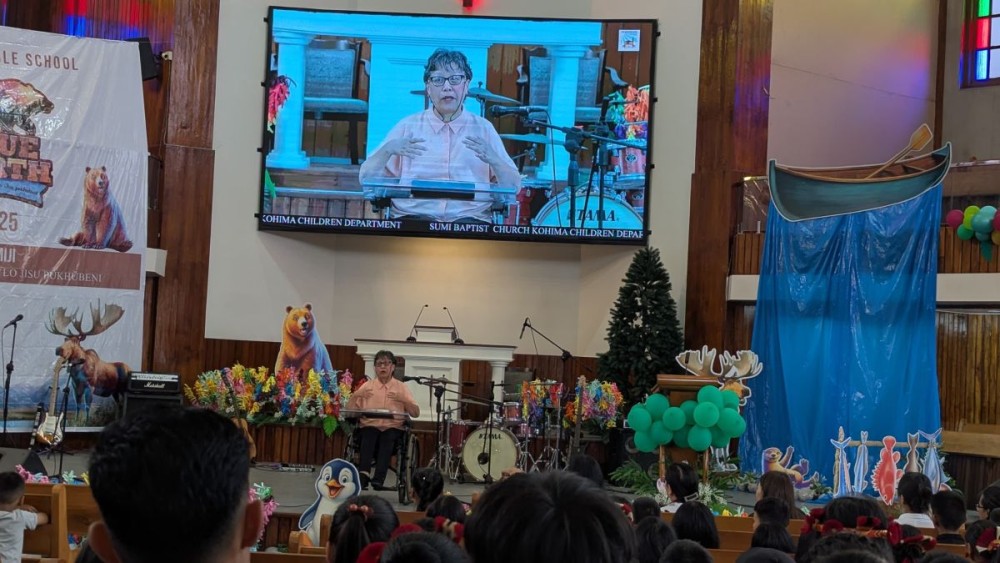Diethono Nakhro, former State Disability Commissioner speaking at the Seminar on "Learning Disabilities" at Sumi Baptist Church Kohima on June 26. (Morung Photo)

Seminar on Learning Disabilities challenges social indifference to invisible disabilities
Morung Express News
Kohima | June 26
“We live in a world that often values only what it can see - and measure. If you don’t fit the visible norms of what society considers “productive” or “normal,” you risk being ignored, misunderstood, or left behind. And that is the reality that disabled people live every day – they exist, but their lives don’t seem to matter,” remarked Diethono Nakhro, former State Disability Commissioner on Thursday.
She was speaking at a seminar on “Learning Disabilities” jointly organised by LAPIYE Centre for Mental Well-being and Office of the State Commissioner for Person with Disabilities in collaboration with Department of Children Education, Sumi Baptist Church, Kohima under the theme, “Do you see me?” at Sumi Baptist Church Kohima on June 26.
Terming the theme- “Do You See Me?” as deeply powerful, she underlined that, it is not just a question, but a challenge while asserting that, “for many of us in the disabled community, it is a lived reality that we are constantly navigating: the reality of not being seen.”
She observed that some of the key reasons for the invisibility of disabled people, across social, structural, and cultural dimensions are because of Stigma and Shame, Lack of Awareness and Understanding, Inaccessible Environments, and Poor, Non-existent Data, and Education and Employment Gaps.
She further pointed out that Disabilities like SLD, ASD, Intellectual and Developmental Disabilities, mental health conditions are still very poorly understood more than other disabilities. “Because of the lack of understanding and awareness, the required support is not being made available and they remain in a state of invisibility”, she stated.
She also spoke about why visibility matters while pointing out that “it is about more than being seen with our eyes. It is about recognition, dignity, and agency.”
Nakhro also emphasized that to truly see someone means “listening, not assuming; It means asking, not deciding for them, and creating spaces where everyone — visible or invisible, verbal or nonverbal, mobile or immobile — can show up fully and be heard.”
With the church having enormous authority and influence she stated belief that “there is so much that the church can do to change attitudes and perceptions, educate the masses on inclusion and acceptance and encouraging people with disabilities in their gifts and abilities.”
“In my point of view, the church needs to step up to play this role in a much stronger way – to make the invisible visible,” she affirmed.






